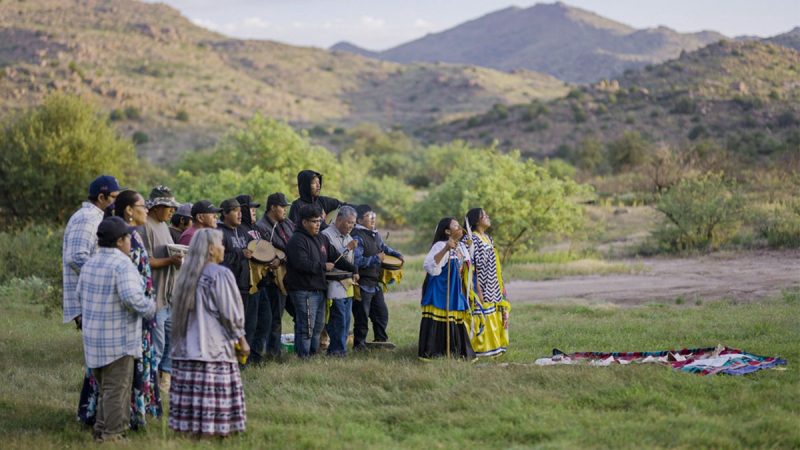
Apache Tribe’s Historic Battle Over Sacred Land Heads to Supreme Court
The Apache Tribe’s long-standing battle with the federal government over sacred land has reached a critical juncture as the case heads to the Supreme Court. The tribe has been fighting to protect Oak Flat, a site in Arizona sacred to the Apache people, from being developed for a copper mine.
The dispute dates back to the early 2000s when the federal government passed legislation that would transfer ownership of the land to a mining company. The move was strongly opposed by the Apache Tribe, who consider Oak Flat to be a place of great spiritual significance. The tribe argues that the development of the mine would irreparably damage the land and threaten their cultural heritage.
Over the years, the Apache Tribe has pursued various legal avenues to block the development of the mine, but their efforts have been met with limited success. The case has now made its way to the Supreme Court, where the tribe is seeking to overturn the legislation that would allow the land transfer to proceed.
The outcome of the case is of crucial importance not only to the Apache Tribe but to indigenous communities across the country. The struggle to protect sacred sites from development is a recurring issue for many Native American tribes, who often find themselves at odds with the federal government and powerful corporate interests.
The Apache Tribe’s fight for Oak Flat has garnered support from environmentalists, human rights activists, and other indigenous groups who see the case as a test of the government’s commitment to upholding tribal sovereignty and protecting sacred lands.
As the case continues to unfold in the Supreme Court, the Apache Tribe remains steadfast in their determination to protect Oak Flat and preserve their cultural heritage for future generations. The outcome of this legal battle will have far-reaching implications for Native American rights and the ongoing struggle for environmental justice in the United States.